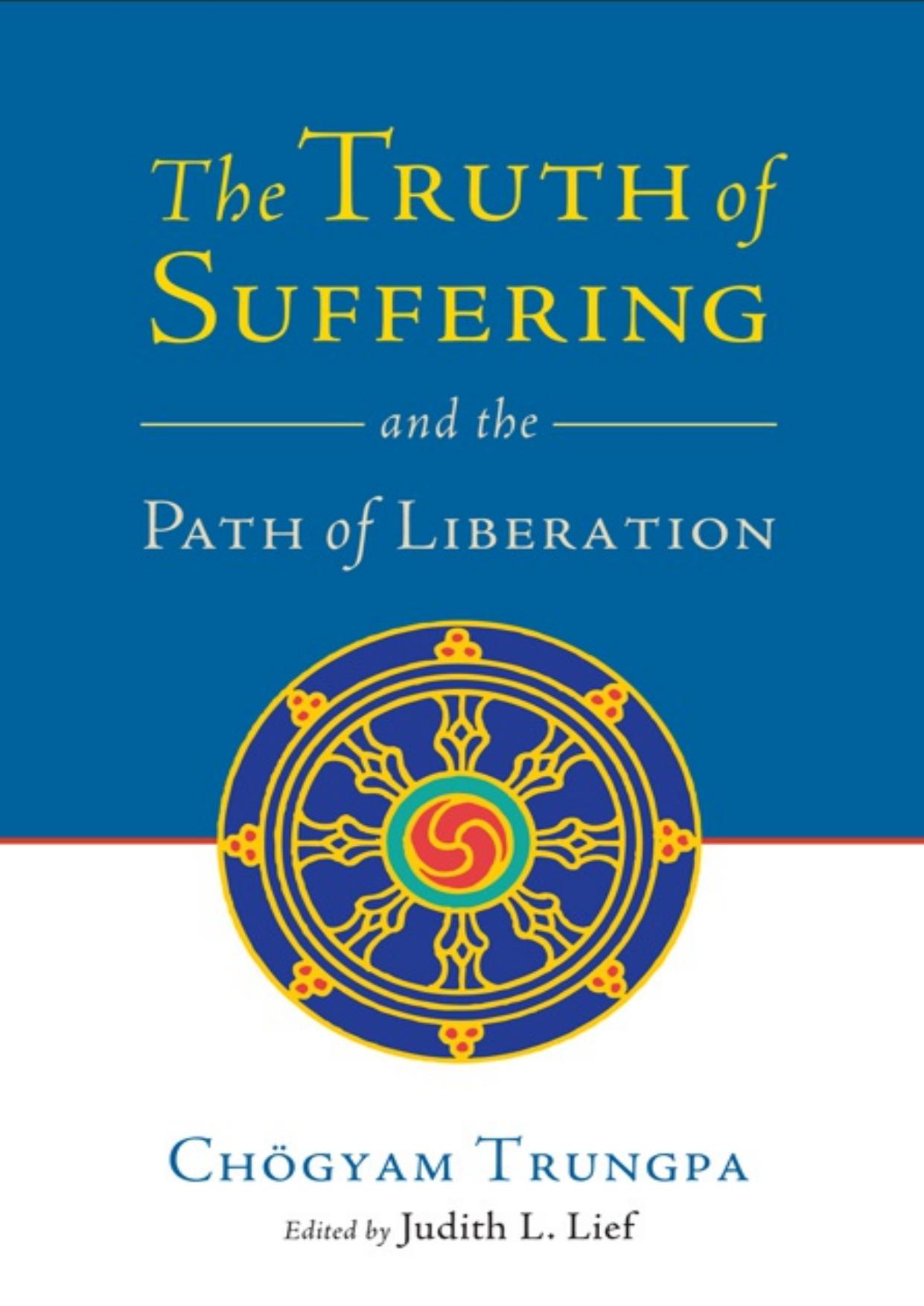The Truth of Suffering and the Path of Liberation by Chögyam Trungpa

Author:Chögyam Trungpa [Chögyam Trungpa]
Language: eng
Format: epub, pdf
Publisher: Shambhala
CHAPTER 8
Transcending Samsara and Nirvana
The idea of cessation is transcending the turmoil and problems of life and the neurosis that goes along with them. However, because we try so hard to transcend all that, we are unable to do so. The very fact of trying so hard is the way we got into trouble in the first place. So in regard to cessation, definitely the most important point is that it transcends both samsara and nirvana. By transcending both samsaric and nirvanic possibilities of confusion, we are transcending cessation itself, so there is no ground. But that groundlessness itself could become a very powerful expression of cessation.
FROM THE HINAYANA point of view, cessation means being able to prevent problems or use them up. The Sanskrit word for cessation is nirodha, and in Tibetan, it is gokpa, which in verb form means “to stop” or “to prevent.” The idea of cessation is not so much being calmed down as suddenly being stopped. Sometimes gokpa refers to the final goal, the state of enlightenment, or freedom. However, in this case, gokpa is not regarded as the final goal; instead, it simply means that temporarily problems have been prevented. We have been able to cut through them, to cut them down. Having cut unnecessary garbage, we are able to develop real living sanity and to let that shine through. Cessation refers to the prevention of unnecessary hassle; however, a level of hassle still remains. It is like having nice food and being satisfied with your particular dish, but still having the hassle that you have to pay for it.
Gokpa also refers to the final goal, the state of enlightenment or freedom. Gokpa has the quality of a vaccination: once problems are prevented, it is for good. Cessation means that we are actually able to prevent karmic chain reactions as well as karmic consequences on the spot. That possibility comes from our own realization and experience of the journey. We begin to feel that we could prevent such problems by being highly disciplined and by having a genuine connection with our own mind and thought patterns, which could be good or bad, virtuous or otherwise.
The question is how to unplug, how to switch off the electricity without getting a shock. As far as shamatha practice is concerned, the way to do so is by nonparticipation in the samsaric world. You become a monk or a nun. You become a good practitioner who sits a lot, for during sitting practice you are preventing karma, or at least you are not committing any wrong-doings. That logic might seem simpleminded, but it is not simply that if you don’t do anything, that is good, and if you do lots of things, that is bad. The logic is that when you are meditating, you are actually boycotting the process of furthering anything at all.
There are various degrees of cessation. There could be a lesser, medium, or greater degree of cessation. Because we understand how cessation evolves, we begin to feel that we are actually making progress.
Download
The Truth of Suffering and the Path of Liberation by Chögyam Trungpa.pdf
This site does not store any files on its server. We only index and link to content provided by other sites. Please contact the content providers to delete copyright contents if any and email us, we'll remove relevant links or contents immediately.
The Way of Zen by Alan W. Watts(6601)
Ego Is the Enemy by Ryan Holiday(5417)
The Art of Happiness by The Dalai Lama(4125)
The Book of Joy by Dalai Lama(3976)
Why Buddhism is True by Robert Wright(3447)
Spark Joy by Marie Kondo(3299)
Shift into Freedom by Loch Kelly(3194)
Happiness by Matthieu Ricard(3040)
A Monk's Guide to a Clean House and Mind by Shoukei Matsumoto(2912)
The Lost Art of Good Conversation by Sakyong Mipham(2651)
The Meaning of the Library by unknow(2565)
The Unfettered Mind: Writings from a Zen Master to a Master Swordsman by Takuan Soho(2309)
The Third Eye by T. Lobsang Rampa(2260)
Anthology by T J(2210)
Red Shambhala by Andrei Znamenski(2193)
The Diamond Cutter by Geshe Michael Roach(2058)
Thoughts Without A Thinker: Psychotherapy from a Buddhist Perspective by Epstein Mark(2014)
Twilight of Idols and Anti-Christ by Friedrich Nietzsche(1892)
Advice Not Given by Mark Epstein(1878)
